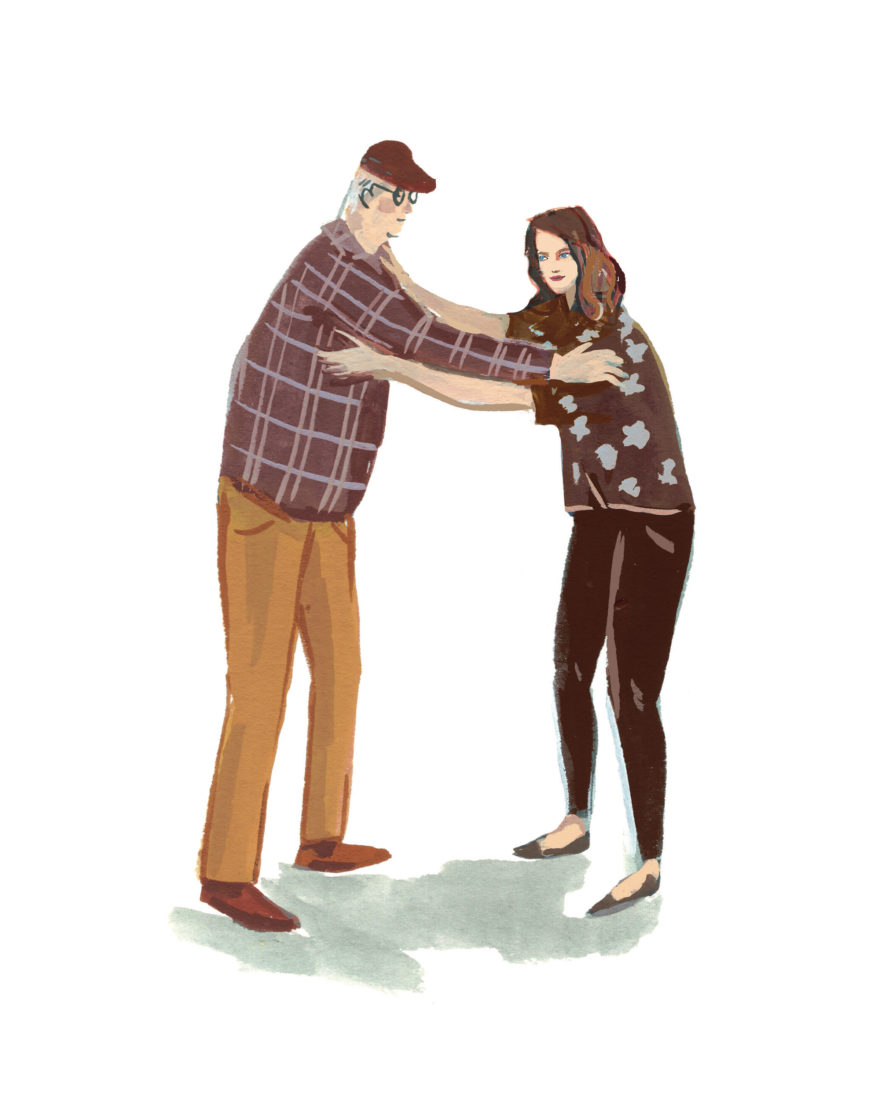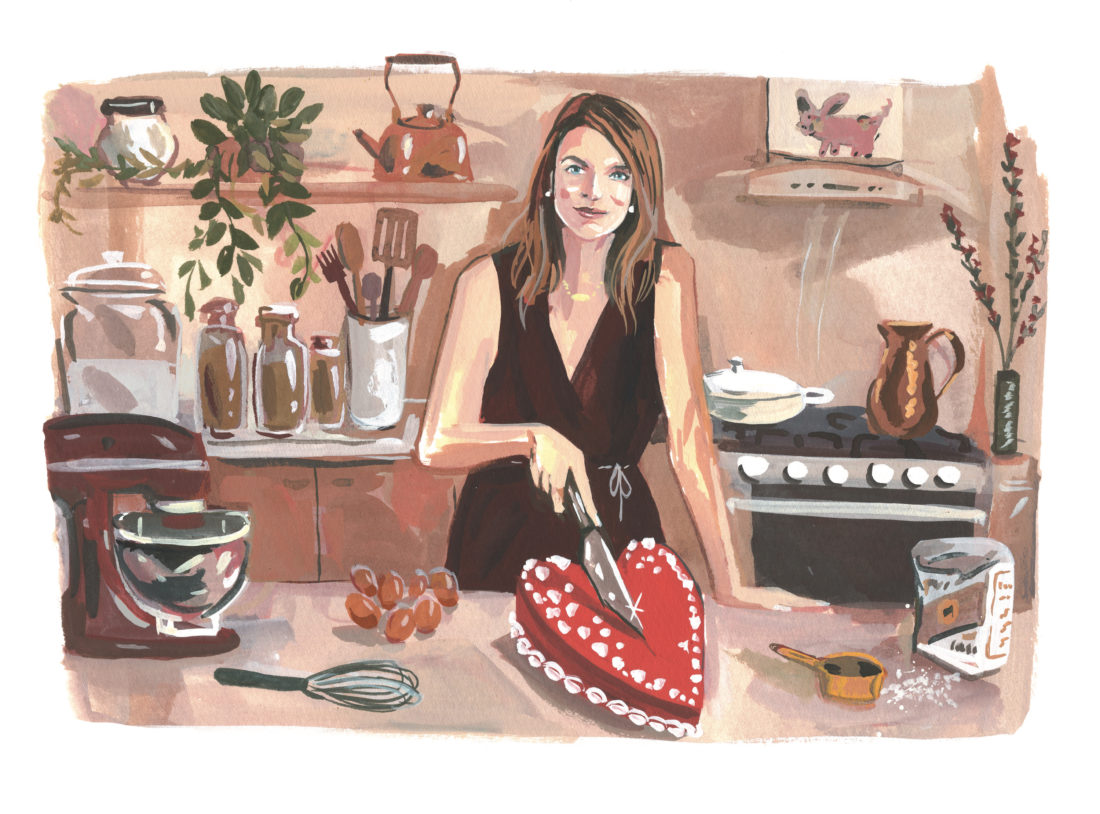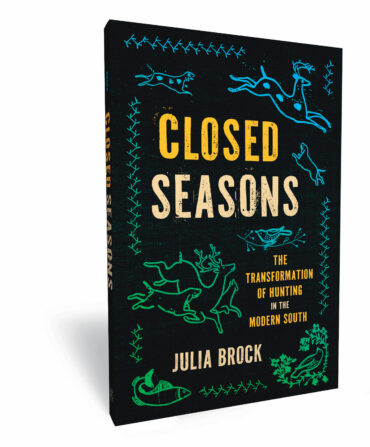Listen to Vivian Howard read her column:
In case you didn’t know, I’ve been going through a divorce. And due to the nature of separating yourself from anything, I’ve not been at it alone. Rather, Ben and I have enlisted (independently, of course) a gaggle of therapists, lawyers, family, and friends to babysit our tedious lurch toward uncoupling.
Early in the process, someone from my side pointed out that relationships benefit from understanding each other’s love language. I had heard of this “love language” stuff, knew that it stemmed from a self-help-ish book from the nineties, and dismissed its credo—I’ve always been confused as to why something that reflects someone’s platitudes can be considered nonfiction. However, if I decide to try to couple up again, I plan to take my gaggle’s advice and do my homework.
According to the author of that book, Gary Chapman, PhD, people express and receive love in only five ways. I can pluck two of them from my heart-shaped box straightaway, as my family reared out of me an appreciation for quality time with others and for casual physical touch long ago.
A surprise baby born into a band of sisters ages nine, twelve, and fifteen, I learned early on that being alone, preferably behind a closed door, was both a necessity and a luxury. Mostly because my sisters, my live-in mentors, constantly asked me to leave them just that way. As a four-year-old, I didn’t comprehend the self-preservation that regime enabled, but I fully grasp it now. And much as I regret it, and probably shouldn’t admit it, physical touch also causes problems for me. I never thought about it until I went to boarding school and saw full-grown teenage girls watching Beverly Hills, 90210, snuggled up like toddlers in a puddle. We didn’t wallow or embrace naturally in my house.
In fact, to watch a TV show as a flesh-touching unit happened so rarely I remember only one specific instance: the infamous “Who shot J.R.?” episode of Dallas, 1980.
If you’re thinking you don’t get down with random cuddles either, so what’s the big deal, consider that the Howard Hug has become notorious enough to warrant a name—and not because it’s big, sloppy, and fortifying. Rather, if the average hug is both given and received with a convex posture, the Howard Hug ends up remarkably concave. Nothing says “I love you” like folding in on yourself at the mere suggestion of an embrace.

Luckily, Dr. Chapman gave us three other dialects of the heart to consider. If I could pick one, I’d want the love language of gifts. Unfortunately, though, my experience to date suggests I would welcome this as warmly as I did the Talbots sweater my mom gave me for Christmas last year. Much as I appreciate the practical nature of deftly wrapped AirPods and fancy socks destined to be lost, I don’t feel butterflies flutter in my gut or a rush of intimacy when I receive, say, my yearly pair of new pajamas. Instead, I often skulk away, Edible Arrangements bouquet tucked under my arm, feeling misunderstood. As for giving, I’ve never responded well when I am ordered to do something, and the calendar’s insistence year after year that I dole out presents on certain days makes the whole thing feel a lot more like labor than love.
To any of the divorcés out there who had hoped to ask me out but find themselves thinking better of it after the last few paragraphs, do not be deterred. I do speak love. It’s just a coded, slightly twisted language informed by Chapman’s last two: acts of service and words of affirmation.
Let me preface this by saying I always felt safe and cherished, even special, as a child, and my parents never made me do anything that seemed out of line with proper parenting. But when I think of acts of service, I immediately recall watching Solid Gold or Punky Brewster in our living room and hearing my dad yell, “Viv-yen!” from down the hall. I would wait for a commercial break and then rise and rush to my parents’ room to perform my nightly duty: taking off my dad’s navy-blue, extremely tight socks, followed by scratching his back. I aimed to have the whole thing last no longer than the commercial break. The stamp this ritual left means that today I consider acts of service in my relationships to be unpleasant but harmless duties done in the name of the one you love. Some great examples would be for someone to detail my car or to clean up my dog’s poop without so much as speaking about the accident. In return I’ll give you that alone time you have been dreaming about.
At least in spirit, though, I’m probably most fluent in and prolific with words of affirmation. Of a sort. When ripe with affection and doing my best to make you feel seen, I want to express praise. But what comes out instead somehow sounds so cutting, so intimate, it conveys that I understand your weaknesses as well as your strengths—like a backhanded compliment. In fact, I’ve already affirmed in this manner twice today and it’s only 3:00 p.m. First, when I wished my sister a happy birthday on social media, but also managed to effortlessly weave in a tip of the cap to her somewhat cold bedside manner. Second, when I asked my two best friends for a recommendation for an inexpensive steak knife to take to my beach rental by marveling at the way they manage to have such phenomenal taste on their remarkably tight budgets.
I know, I know. But I learned this dubious skill at the knee of my mom, and it’s a hard habit to break. Scarlett can wind a compliment around a pitchfork with a blend of fierce precision and false innocence that has left me wondering exactly how long I had the double chin before I lost it, and how much shame she actually endured before I put my English degree to use and wrote a best seller. At least, she’s always said in consolation, she’s proud of my ability to surround myself with such smart, hardworking, creative people who lift me up and make me a success.
Don’t be mistaken, I fully realize my brand of service via sacrifice and slanted affirmation doesn’t suit the masses. The fact that my current life partner is a French bulldog named Tina is proof enough. But luckily, growing up in a house where expressing devotion, respect, and deep knowing sounded more like a sly string of insults than a love song turned out to be the perfect prep school for kitchen life.
We all know by now that restaurants are pressure cookers stuffed with dudes, sharp objects, and fire. And just as those three elements suggest, we professional kitchen workers act like cavepeople. No sugar-sweet compliments here. When I was a fledgling line cook at Jean-Georges Vongerichten’s Spice Market in New York, my sous-chef announced to the team that the way I wore my commis hat made me look like a flight attendant. I snapped back that the way he wore his made him look like a tampon—and felt, for the first time in my career, warm, fuzzy, and admired.
It dawned on me in that moment that thanks to the acerbic Howards, I had been slinging chef sonnets my whole life. Perhaps the very decision to cook for people night after night in a hot, confined, overly bright kitchen, all in the service of showing love and pleasing others, might even trace its roots to those nights scratching my dad’s back. Just please—don’t ask me to take off your socks.








